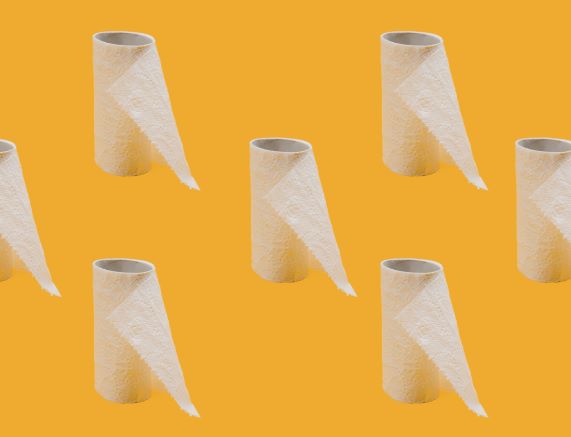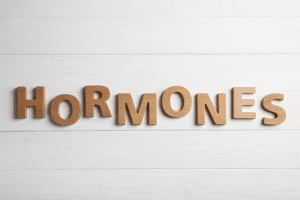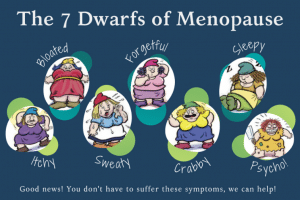History is full of important movements. You could say that the health of our nation depends on movements. It depends on people gathering, whether virtually or physically, and initiating a flow to remove toxic habits from our communities.
Your body functions very similarly. It works to create bowel movements to rid itself of toxins.
I know, I know, that was a cheesy transition. But not many people love jumping right into the topic of poop, so I figured I would ease into it. Now that you know the important movement I’m talking about is a bowel movement, let’s get to it.
Why Are Bowel Movements So Important?
Even though my transition might have been a little cheesy, it’s true. Your body depends on bowel movements to help eliminate toxins and waste. If you aren’t going to the bathroom regularly, your body may be re-absorbing all the ‘ick’ that it wants to get RID of! Check out Dr. Rob’s video specifically about constipation here.
On the other hand, if you’re experiencing loose stool, it can indicate that your body isn’t fully absorbing the nutrients from your diet, which can also lead to some serious problems stemming from nutrient deficiencies.
Understanding your bowel movements can also tell you a lot about your health. If you’re experiencing constipation or loose stool often, there’s likely something deeper at play. So, let’s take a minute to talk about what a healthy bowel looks like.
What Does a Healthy Bowel Movement ‘Look’ Like?
Many people don’t know where to begin when it comes to determining what’s “healthy” when it comes to their poop. I’m here to break it down for you!
- Frequency: 3-14 times per week is “normal.” That breaks down to once every other day (at a minimum) to twice a day. Ideally, we want to see our patients eliminating at least once per day. Some people may find that they have a bowel movement after meals, thanks to the gastrocolic effect (which is a fancy way of saying that eating prompts your body to make room for the food by getting rid of the ‘old’ stuff). If you don’t move your bowels at least 3 times per week, or if you find yourself pooping often during the day but in very small or hard to pass quantities, you are likely constipated.
- Duration & Effort: A healthy bowel can be eliminated in just a few minutes without much strain. They should not be painful or difficult to pass.
- Visual: Healthy poop should look more or less like a snake. It should be one long(ish) piece with a curve or S shape. It may also be smooth and broken into a couple of pieces. Check out the texture and shade image below to see how your stool compares.
- Smell: We’ve all heard someone joke about how their poop “don’t stink” or maybe even that it “smells like roses” – but neither of those would be normal! It’s natural for stool to have an odor that, put simply, isn’t great. However, if your stool is particularly foul, smells rotten or sour, that falls into the “abnormal” pool.
What Can Cause Irregular Bowel Movements
If you’re still reading and thinking, “well, shoot. My bowel movements definitely aren’t as normal as they should be…” you aren’t alone. Many Americans experience less-than-ideal bowel movements thanks to many different reasons. There’s a long list of things can contribute to irregular bowels (a few are noted below). Some of these things are quite easy to address, while others may take more time to correct.
- Underactive thyroid
- Under- or over-eating
- Too little or too much fiber
- Dehydration
- Food sensitivities
- Small Intestinal Bacterial Overgrowth (SIBO)
- Immobility
- Misaligned spine
- Bowel obstruction
- Parasites
- Bacterial or viral infections
- Stress (Yes, stress affects your bowel movements and digestion!)
Improving Bowel Movements
Luckily, the majority of people can improve their bowel movements by incorporating one or several of the below into their diet or lifestyle.
- Digestive Enzymes
- Foot Stool (to facilitate good “pooping posture”)
- Increased movement
- Increased water intake
- Fiber (increase or decrease, depending on situation, but typically needs to be increased)
- Adjustments
- Neurometabolic care for parasites and infections, or other toxins that may be impacting the bowels
- Modified diet (omitting food sensitivities or gut irritants)
- Targeting quantity of food intake
- Address stress
An Important Note for Women
Now, I’m an open book when it comes to bowel movements, and as a woman, I want to make a special note here to my fellow women. Women’s hormones – when healthy – do a delicate dance each month. And take a guess as to what can really throw a wrench into the works of this dance? Irregular bowel movements.
Last year, my bowel movements and hormones were not as regular as I’d like. My stools were difficult to pass and it would be a month and half to two months between my periods. I knew something wasn’t right. After seeing Dr. Rob and addressing my digestion with digestive enzymes, not only was I experiencing more regular bowel movements, but my cycles became way more regular.
Why are these related? When you’re not pooping, your body isn’t eliminating the excess estrogen in your system, which can throw off your hormones and cause other annoying problems like weight gain and acne – and for those of you who are at that point in your life – could possibly impact your efforts in achieving a pregnancy. It may also contribute to other (bigger) estrogen-related problems down the road, like certain cancers.
Women on the other side of the spectrum, who experience loose stools, might also find that their cycles are ‘wonky’ for a different reason. When things are passing through our system too fast, there is not enough time for the body to absorb what it needs. Hormones are very sensitive so if you aren’t getting sufficient levels of certain nutrients, you’ll notice! It may show up as too-long or too-short of cycles, painful periods, moodiness, or fatigue, just to name a few symptoms.
In addition to the big impact bowel movements can have on women’s health, it’s important to know that IBS is more common in women – So women, please don’t hold back talking about your bowel movements the next time you’re at the doctor’s office. Poop can be an important indicator of health!
Want More Information? Get in Touch.
If you want to better understand your body or just don’t know where to begin with improving your health (bowel movements or otherwise), reach out to us. We are here to help.
Contact our office at 952-949-0676 or email us at info@valeowc.com.






